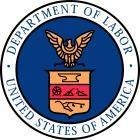Today, to commemorate World Day Against Child Labor, I was privileged to participate in a screening and panel discussion of the film “Girl Rising,” which demonstrates the power of education to change young women’s lives.
The film paints nine moving portraits of girls who overcame unforgiving circumstances and built brighter futures. One of these girls is Suma, from Nepal, who since age 6 had started her day before dawn, not to attend school, but to wash dishes, clean rooms and fetch firewood until late into the night. Her “master” called her “unlucky girl,” fed her scraps and made her sleep in a goat shed.
Then something changed. Suma learned to read with the help of a local teacher and a social worker who were committed to her development. Now, she is freed from bonded labor and actively helps other girls escape the same fate. “I feel as though I have power, and I have important things to do,” she says.
Millions of girls around the world start their lives the way Suma did. They work instead of going to school. Child domestic workers like her are under the legal age for employment and work long hours for little pay. Many suffer injuries, accidents and illnesses at their workplaces, and are vulnerable to mental, physical and sexual abuse.
Far too few find a way out. In fact, 33 million fewer girls than boys are enrolled in primary school worldwide. Globally, 77.6 million girls are not enrolled in primary or secondary education, and 100 million girls are engaged in child labor.
The Bureau of International Labor Affairs is working to change these statistics by ensuring that fewer stories start like Suma’s, and that more follow a similar path to empowerment. Since 1995, we have supported projects in more than 90 countries around the world to combat exploitative child labor, including child domestic work. To date, ILAB projects have rescued 1.6 million children and provided them with education and other services.
In Suma’s native Nepal, for example, the ILAB-funded program “New Path, New Steps” removed a girl named Sabita from horrific conditions. She had been promised a job in a fancy shop in Pokhara to support her poor family but was forced instead to work at an adult entertainment establishment.
Yet, Sabita never gave up on her dreams of a better life through education. She joined the program’s Learning Center, gaining computer skills and earning her secondary school degree. She has since gotten a job as a community organizer for the Child and Women Empowerment Society, the nonprofit organization running the project.
Girls like Sabita and Suma were given a chance to overcome barriers to education, break the cycle of poverty, and empower and inspire their communities. Today, we reflect on their stories of courage and on the untold stories of millions of children still suffering exploitation, not yet provided opportunities for brighter futures.


 />i
/>i


